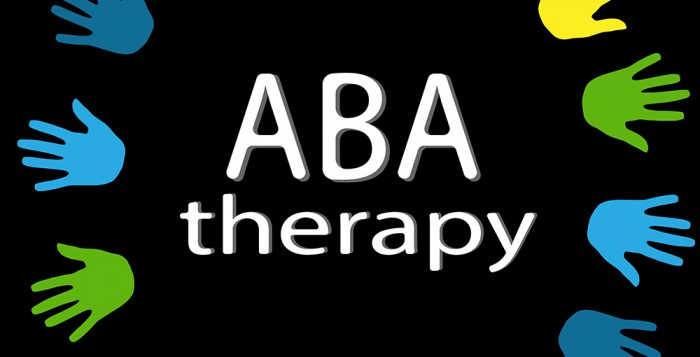Jim Sharp
Training Requirements for BSC-ASD Provided ABA Services
The Office of Mental Health and Substance Abuse Services (OMHSAS) has issued a new bulletin: OMHSAS-16-04 Training Requirements for Licensed Behavior Specialists Who Use Behavioral Specialist Consultant-Autism Spectrum Disorder Services to Provide Applied Behavioral Analysis. The new requirements are effective as of Sunday, May 15, 2016. This bulletin applies to organizations, individuals, and entities approved to provide Behavioral Specialist Consultant-Autism Spectrum Disorder (BSC-ASD) services, and who use these services to provide Applied Behavioral Analysis (ABA) in the fee-for-service and HealthChoices behavioral health managed care delivery systems. The purpose of this bulletin is to notify providers of the training requirements for newly licensed behavior specialists who use BSC-ASD services to provide ABA and who meet the training requirements for the behavior specialist license through trainings approved by the Bureau of Autism Services or the Behavior Analyst Certification Board.
Children’s Committee Materials from April 13, 2016
April is Autism Acceptance Month!
Pennsylvania is the first state to name April “Autism Acceptance Month.”
As autism awareness continues to grow, Pennsylvania is taking a step forward in the education and inclusion of individuals with autism, as Governor Tom Wolf proclaims April “Autism Acceptance Month.” Pennsylvania is one of the first states in the country to change from “awareness” to “acceptance.” This furthers the work of many families and self-advocates who have expressed the importance of moving from simply raising awareness about autism, to also include, better understand, and accept individuals with autism into full participation in community life.
Data Seminars: Developing, Collecting, and Analyzing
This is a free, statewide training opportunity for professionals who implement autism intervention support plans, collect and develop data tools, analyze data, and make instructional decisions. These seminars will be held across the state at various locations and facilitated by Bureau of Autism Services (BAS) clinical staff. More information and how to register is available on the BAS website.
OMHSAS Children’s Bureau “Moving Forward”
In recent years, the Office of Mental Health and Substance Abuse Services (OMHSAS) had received concerns regarding the Bureau of Children’s Behavioral Health Services (Children’s Bureau). Four major themes emerged from this feedback relating to communication, regulations and policy, operational consistency, and system partner engagement. Last spring, OMHSAS engaged Mercer Consulting to conduct a study of the Children’s Bureau that included three two-hour focus groups with OMHSAS system partners, including representatives from RCPA. The primary goal of the review was to identify ways in which OMHSAS can improve internal operations as well as communication and collaboration.
On Tuesday, Deputy Secretary Dennis Marion shared both an executive summary of the Mercer Independent Study as well as his description of the steps forward that OMHSAS has initiated in response to the concerns and findings. The action items outlined by Deputy Secretary Marion are:
- Review and consolidation of regulations related to Behavioral Health Rehabilitation Services (BHRS). OMHSAS will engage with stakeholders to draft regulatory changes with the expectation that proposed BHRS regulations will be released for public comment in mid-2017.
- Strategic reorganization of OMHSAS leadership. On March 7, Shannon Fagan joined OMHSAS as Children’s Bureau director, and Sherry Peters became director of the Bureau of Policy, Planning, and Program Development.
- Organization-wide effort to improve consistency and quality. Moving forward, OMHSAS senior staff will focus on identifying areas of potential improvement, developing strategies to strengthen internal and external processes, promoting an organizational culture of collaboration, coordination, communication, and cohesiveness, and monitoring progress towards addressing the concerns voiced by OMHSAS stakeholders.
- Emphasis on family and stakeholder engagement. The involvement of PACA, RCPA, BH-MCOs, and their contractors, played an integral role in working to identify issues of concern.
- A redefining of “customer service.” To address concerns relating to responsiveness and professionalism, internal meetings have been held to stress the importance of holding OMHSAS staff to high standards of customer service.
- Renewed focus on communications. In response to concerns regarding effectiveness of internal and external communications, Shanna Klucar was appointed as executive assistant to the deputy secretary on January 30.
OMHSAS invites RCPA members and other stakeholders to share comments and concerns regarding Children’s Behavioral Health Services to Shannon Fagan, bureau director, as well as the RCPA Children’s Division. In addition, members may contact OMHSAS leadership Sherry Peters and Shanna Klucar with more general comments and concerns.
PROMISe Enrollment Now Online
The Department of Human Services (DHS) Medical Assistance Online Provider Enrollment Application information is now electronic, online, and available to provider organizations. The improvements and modernization of the PROMISe system have been strongly encouraged by RCPA and a significant goal of DHS. Some of the benefits of online enrollment application submissions are:
- Allowing documents that previously had to be mailed or faxed to be uploaded directly to the portal;
- Permitting providers see the status of their submissions; and
- Decreasing wait time to review applications.
The information you will need to submit an application for enrollment:
- Access the online enrollment application
- Review the training guide
- Review the frequently asked questions document for important clarifications
- A “Help” feature is available at any time during the completion of an application
- Supplemental Services require the Behavioral Health Managed Care Organization to attest that a provider is credentialed
Submit Your Nominations for Juvenile Justice Awards
The Juvenile Court Judges’ Commission (JCJC) and the Awards Committee of the PA Council of Chief Juvenile Probation Officers are pleased to announce that nominations are now being accepted for the 2016 JCJC Awards Program. This year program categories for which your program may be eligible include:
- Residential Program of the Year
- Community Based Program of the Year
- Meritorious Service Award
As in previous years, all nominations must be submitted by county juvenile probation departments. If you would like to have your program or volunteer nominated, please contact a chief juvenile probation officer to discuss the possibility of submitting a nomination. Formal nomination materials must be postmarked by Monday, May 2, 2016.
The JCJC will once again sponsor a Youth Awards Program as part of this year’s Annual Training and Awards Program, to honor the youth selected as winners. The Youth Awards Committee is accepting nominations for the Outstanding Achievement Contest and the Creative Expression Contest. The Creative Expression Contest category will include either a written, poster, or video entry in two age categories; 15 & under and 16 & over. Entry forms for this category will be available soon on the JCJC website. Please contact Keith A. Graybill at (717) 705-9006 or by email if you have any questions or need assistance.
PA Acts to Improve Medication Management for Children
This week the Pennsylvania Department of Human Services (DHS) announced several new initiatives to reduce the use of psychotropic medication among our state’s most vulnerable children. Speaking at The Children’s Hospital of Philadelphia, DHS Secretary Ted Dallas reported on the partnership of DHS with the Pennsylvania Chapter of the American Academy of Pediatrics and the Pennsylvania Psychiatric Society. A state-commissioned PolicyLab study that found that in 2012 in Pennsylvania, the use of psychotropic medications was nearly three times higher among 6-18 year olds in foster care than among youth in Medicaid overall. Based on this study and the collaborative effort mentioned above, Pennsylvania has initiated the following:
- Best practice guidelines are being developed for clinicians regarding comprehensive assessments of behavior and treatment interventions;
- Managed care organizations will be required to give prior authorization for antipsychotic medications for children;
- A new electronic dashboard will make it easier for DHS to monitor what medications children are taking and improve care coordination;
- In April, DHS will open a telephonic child psychiatric consultative service to help prescribing physicians, physician assistants, and nurse practitioners appropriately prescribe psychotropic medication for children; and
- In July, the department will begin training child welfare caseworkers and caregivers on the appropriate use of psychotropic medication.
“The inappropriate use of these powerful medications for children in the foster care system compounds the trauma experienced by children who have been the victim of abuse and neglect and is simply unacceptable,” Dallas said, “The recommendations and analysis from PolicyLab provide Pennsylvania with an invaluable roadmap to improve the safety and quality of life for foster children served by the Medicaid system.”
RCPA Children’s Division: An Overview
Children’s Committee Meeting Materials Now Available
The presentation materials, handouts, and recordings of the February 3 joint meeting of the RCPA Children’s and Mental Health Committees, as well as the Children’s Committee meeting, are now available. Materials include documents relating to the panel presentation on the needs and opportunities in early childhood services, and other documents referenced in the committee meeting discussions.

















